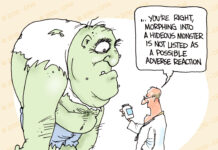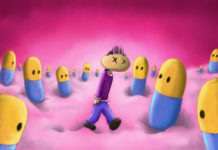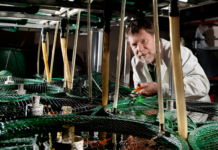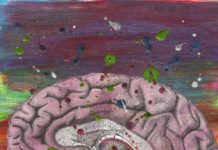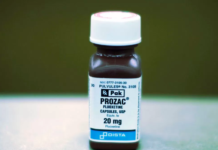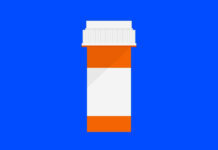The Sedated Society: the Real Story of our Prescribing Epidemic
BBC 5 live ran a recent piece that aimed to explore why antidepressant prescriptions have doubled in the last ten years. Unfortunately, it failed to address the drivers of this epidemic – industry-backed diagnostic inflation and the lax regulation of medicines.
Clinical Trials Underreport Harms of Antidepressant Medications
A group of researchers recently found serious bias in the reporting of harm due to adverse events in antidepressant medication clinical trials. They report...
How FDA Avoided Finding Adult Antidepressant Suicidality
The studies that the FDA relied upon for adults over age 24 were dismally flawed and untrustworthy compared to the ones used for children. The child studies showed that antidepressants can cause suicidality — the adult studies showed nothing other than FDA collusion with drug companies.
Adolescent Suicide and The Black Box Warning: STAT Gets It All Wrong
STAT recently published an opinion piece arguing that the black box warning on antidepressants has led to an increase in adolescent suicide.
It is easily debunked, and reveals once again how our society is regularly misled about research findings related to psychiatric drugs. STAT has lent its good name to a false story that, unfortunately, will resonate loudly with the public.
Systematic Review Finds Antidepressant Withdrawal Common and Potentially Long-lasting
Prominent researchers conduct a review of antidepressant withdrawal incidence, duration, and severity. Results lead to call for new clinical guidelines.
What Animal Research Says About Sexual Side-effects of SSRIs
A group of researchers in Denmark examines what existing animal studies can tell us about the sexual side-effects of SSRI antidepressants.
The Effects of Antidepressant Exposure Across Generations: An Interview with Dr. Vance Trudeau
Dr. Vance Trudeau discusses his study's finding that antidepressants may have far-reaching, adverse effects that last up to three generations.
Psychiatry’s Manufactured Consent: Chemical Imbalance Theory and the Antidepressant Explosion
The title of Edward Herman and Noam Chomsky’s book Manufacturing Consent derives from presidential advisor Walter Lippmann’s phrase “the manufacture of consent”—a necessity for Lippmann, who believed that the general public is incompetent in discerning what’s truly best for them, and so their opinion must be molded by a benevolent elite who do know what’s best for them. Why has the American public not heard psychiatrists in positions of influence on the mass media debunk the chemical imbalance theory? Big Pharma’s corruption of psychiatry is only part of the explanation. Many psychiatrists, acting in the manner of a benevolent elite, did not alert the general public because they believed that the chemical imbalance theory was a useful fiction to get patients to accept their mental illness and take their medication. In other words, the chemical imbalance theory was an excellent way to manufacture consent.
Researchers Fail to Predict Antidepressant Treatment Success
In a new study published in JAMA Psychiatry, researchers investigated whether they could use EEG (electroencephalograph) technology to predict whether people would feel better...
We Still Buy the Lie That Chemical Imbalances Cause Depression
From Quartz: Despite its inaccuracy, the chemical imbalance theory of mental illness continues to persist in public consciousness. The prevalence of this myth may be...
The War on Antidepressants: Why We Need to End it for Public Benefit
In the interest of the patients who are currently experiencing withdrawal reactions and the many more who will suffer withdrawal effects in the future, we need to end this “war.” Academic psychiatry must address these problems and conduct thorough research on withdrawal reactions.
‘Do Antidepressants Work?’ is the Wrong Question
“This research points to the inadequacy of asking the simple question: ‘Do antidepressants work?’ Instead, the value or otherwise of antidepressants needs to be understood in the context of the diversity of experience and the particular meaning they hold in people’s lives.”
Antidepressant Drugs & Suicide Rates
In 2010, Acta Psychiatrica Scandinavica published a study by Göran Isacsson et al. The paper was titled Antidepressant medication prevents suicide in depression. It's a complicated article, with some tenuous logic, but, in any event, it's all moot, because the article was retracted by the authors and by Acta Psychiatrica Scandinavica about sixteen months after publication. The retraction had been requested by the authors because of "… unintentional errors in the analysis of the data …"
Antidepressant Use Does Not Prevent Suicide, Study Finds
A new study has found that antidepressants are ineffective for reducing suicide attempts. Researchers report that the risk of suicide is particularly high in the first month after starting an antidepressant.
Daughter of a Psychiatrist
Here I was, 15 years old and already in a long-term treatment facility. I was, on paper: crazy! This entire time, all the adults in my life had been speaking for me. I never felt like I was any of the things they said, but I went along with it. What else could I have done? Every time I rebelled, it only confirmed to my mother what she thought of me.
Pilots Crashing on Antidepressants: A (Not So) Brief History
With the current focus on the possible contribution of psychoactive drugs to the crash of GermanWings flight A320 on Tuesday, March 24, it is useful to identify potential links between the effect of the antidepressants and the events. In all 47 cases listed on SSRIstories, the pilots were taking antidepressant medications, mostly SSRIs, often in combination with other medications and sometimes with alcohol.
Usage of Depression Pills Almost Halved Among Children in Denmark
After a number of years with a steadily increasing sales curve, the number of children and adolescents in treatment with depression pills decreased by 41% in Denmark. Despite this welcome development, pharmaceutical companies and psychiatry professors continue to deceive the population and deny the facts about these drugs.
Antidepressant Anarchy in the UK
In this blog, I want to give some personal reflections on the events of the last few weeks in relation to the Lancet antidepressant meta-analysis and the lodging of a formal complaint with the UK Royal College of Psychiatrists. The issue of antidepressant withdrawal has been brought into the public eye in the UK like never before. What happens next will be very interesting.
People of Great Britain! Our Beast Descends Upon Your Children
Scientific evidence indicates that antidepressants do not help children. In light of such high risks to the child’s wellbeing, these psychiatric chemicals are clearly doing more harm than good. What kind of society would permit this assault on its children?
Clinical Trials Show Antidepressants “Not Beneficial in the Long Term”
Clinical trials also consistently fail to measure and report long-term harmful effects.
Citizens Petition Calls for Sexual Side Effect Warnings
Researchers take action after study exposes enduring sexual dysfunction as a potential side effect of serotonin reuptake inhibiting antidepressants, 5α-reductase inhibitors, and isotretinoin.
Antidepressants/Depression
A. The Natural Course of Depression
Prior to the widespread use of antidepressants, the National Institute of Mental Health told the public that people regularly...
Using Breathing-Based Meditation to Treat Depression
Study reveals data suggesting yogic breathing may be helpful in treating depression for patients who have not respond to antidepressants
Therapy Gets More Effective Over Time While Antidepressants Decrease in Effectiveness
New review of long-term depression data finds psychotherapy more effective over time whereas antidepressants decrease in effectiveness.
Are Drug Side Effects Driving Depression Rates?
A new study finds that more than a third of Americans are taking prescription drugs that can cause depressive symptoms as a side-effect.


